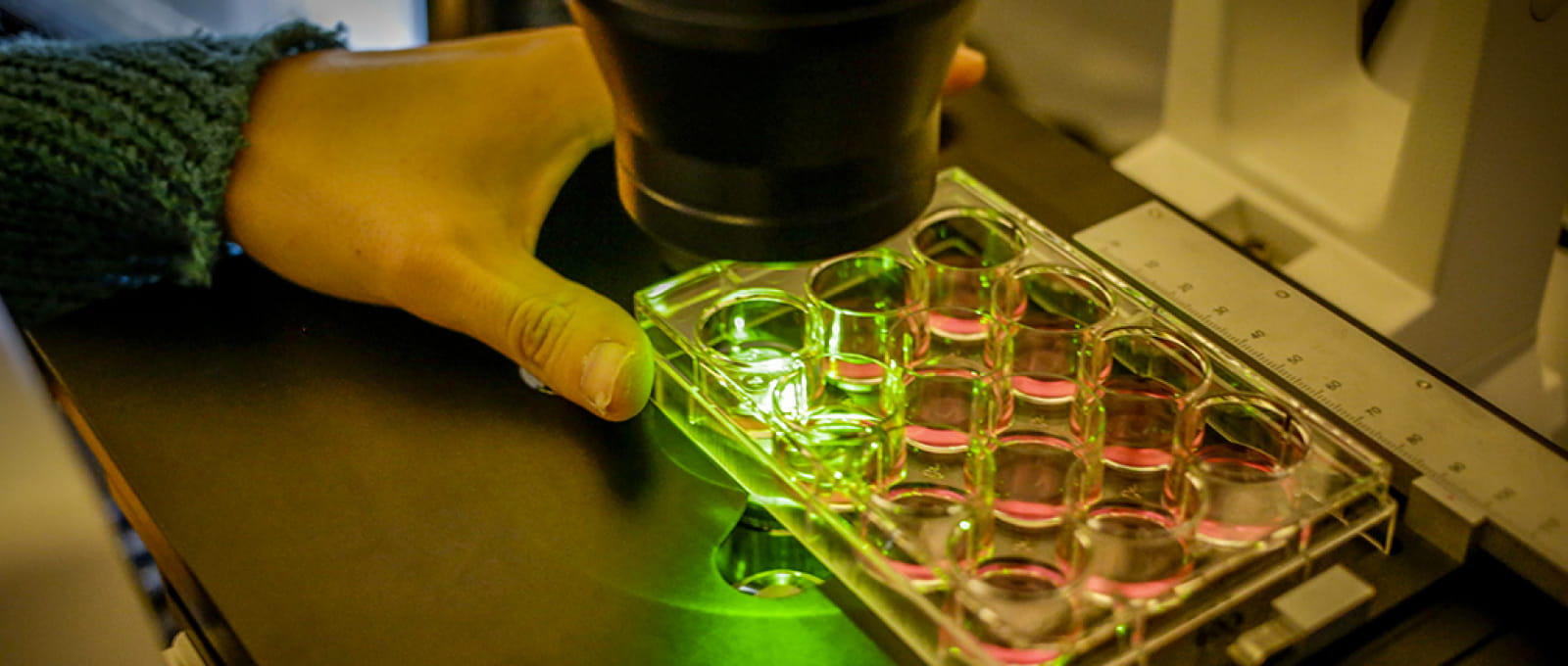Description de la soumission d'un avis

Affiliated teams at the Marseille Medical Genetics Center (MMG)

Located at the heart of the third largest European university hospital center, Marseille Medical Genetics (MMG) lab boasts a triple mission: to decipher the mechanisms involved in genetic diseases, to open new diagnostic and therapeutic pathways and to improve the quality of life of patients affected by these rare diseases.
From the genetics of rare diseases to developmental biology, from epigenetics to genome dynamics and from bioinformatics to systems biology, the MMG explores all facets of the discipline through a translational approach that focuses on the patient.
Human Neurogenetics
DescriptionOur group studies rare diseases affecting the children’s brain and leading to intellectual deficiency. We combine approaches in the fields of clinical genetics, pediatric neurology, molecular genetics, neurophysiology, molecular biology, animal behavior analysis and therapeutic development. The two major research programs of our group are Rett syndrome (RTT) and early onset epileptic encephalopathies (EOEE).
We have three major objectives :
- to increase the knowledge in the field of rare genetic diseases affecting the children’s brain,
- to improve diagnosis and prognosis for these diseases,
- to develop new therapeutic strategies.
Laurent Villard Total : 4 HDRs.
- Biologie moléculaire (PCR...)
- Biochimie (Western blot...)
- Culture cellulaire
- Immunomarquages, histologie, cytométrie en flux
- Microscopie (à fluorescence, confocale, électronique...)
- Comportement animal
- Analyse de données médicales
- Bioinformatique
- Autre : Thérapie génique, recherche clinique
Recherche translationnelle dans les maladies rares d'origine génétique du système nerveux central de l'enfant.
Maladies rares, maladies génétiques, modèles animaux, séquençage à haut débit, omique, thérapie génique, virus adéno-associés, épilepsies néonatales, syndrome de Rett.
- Animal Cognition And Behavior
- Disorders Of The Nervous System
- Novel Methods And Technology Development
Translational NeuroMyology
DescriptionThe groups of diseases studied by the team, muscular dystrophies, myopathies and hereditary peripheral neuropathies, are part of the large family of neuromuscular diseases (NMD), a group of hereditary diseases affecting the motor unit, originating from dysfunctions in the muscle or peripheral nervous system, which connect it to the central nervous system. These diseases are characterized by a strong genetic heterogeneity leading to a great diversity and complexity of the pathophysiological pathways involved. The improvement of the diagnosis of these diseases, the understanding of the underlying pathological mechanisms and the definition of new treatments are the main objectives we wish to achieve. The team, composed of 3 researchers and 6 clinicians, pursues its research on two main axes
The study of diseases affecting the peripheral nervous system led by Dr. Valérie Delague (DR INSERM) and the study of diseases affecting the muscles led by Dr. Marc Bartoli (DR CNRS).
Our research aims to:
- Contribute to the increase of knowledge on the physiological and pathological mechanisms of rare diseases affecting the neuromuscular system;
- Propose new innovative therapeutic approaches;
- To contribute to the improvement of knowledge on the biological systems studied by the discovery of new genes mutated in these pathologies
- To improve diagnosis and genetic counseling for these diseases.
Marc Bartoli, Total : 4 HDRs.
- High-throughput sequencing (NGS) of DNA and RNA
- Bioinformatics (NGS data analysis)
- Molecular biology
- Biochemistry
- Cell culture (primary, hiPSC)
- Immunostaining, histology,
- Microscopy (fluorescence, confocal, electron)
- Animal behavior
- Gene and pharmacological therapy
Rare diseases, genetic diseases, peripheral neuropathies, Charcot-Marie-Tooth, myopathies, high throughput sequencing, omics, gene therapy, exome, genome, animal models, induced pluripotent stem cells
- Disorders Of The Nervous System
- Motor Systems
- Novel Methods And Technology Development

